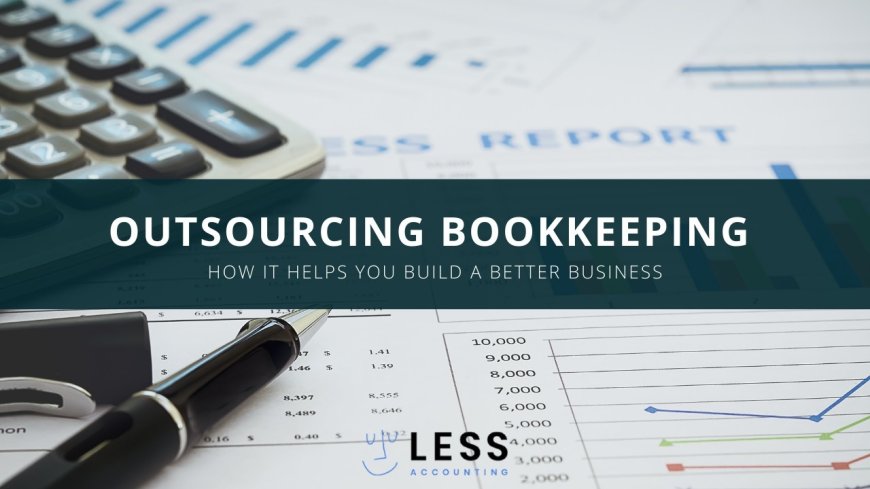Do Offshore Bookkeeping Services Help During Tax Season Crunch Time?

Tax season is a high-pressure period for any business. Between gathering documents, reconciling accounts, and ensuring compliance with complex IRS rules, finance teams often feel the crunch. Errors, delays, or missing reports during this time can lead to late filings, penalties, or even audits.
If your internal team is already stretched thin, one strategic move can significantly ease the burden: offshore bookkeeping services.
But do offshore bookkeeping services actually help during tax season crunch time? The short answer: Absolutely. And here’s why.
Why Tax Season Is Stressful for Businesses
Tax season, typically running from January to April in the U.S., is packed with deadlines, documentation requirements, and financial analysis. Businesses must:
-
Gather and organize income and expense records
-
Reconcile bank and credit card accounts
-
File 1099s, W-2s, and payroll tax returns
-
Ensure compliance with IRS and state tax laws
-
Prepare financial statements for CPAs or tax advisors
-
Respond to last-minute requests and corrections
All while keeping day-to-day operations running. For many businesses, especially small and midsized ones, this can be overwhelming.
Enter Offshore Bookkeeping: A Game-Changer for Tax Season
Offshore bookkeeping services involve outsourcing your bookkeeping tasks to trained professionals located in other countries, often at a lower cost. These professionals work on cloud-based platforms like QuickBooks, Xero, Zoho Books, and NetSuite—offering you real-time financial clarity and support, even during the busiest months.
During tax season, offshore bookkeeping firms can act as your support team, keeping everything in order behind the scenes.
Here’s how they make a difference:
1. Up-to-Date and Accurate Financial Records
One of the biggest tax-time challenges is going back to fix outdated or incomplete records. Offshore bookkeepers continuously maintain your books throughout the year, ensuring:
-
All transactions are categorized correctly
-
Invoices and receipts are recorded and reconciled
-
Bank and credit accounts are matched with your books
-
Payroll entries are up-to-date
When your books are clean and current, your CPA or tax advisor can work faster, file sooner, and reduce the risk of errors.
2. 1099 and Payroll Tax Reporting Support
If you work with freelancers or contractors, you’re responsible for sending out 1099-NEC forms. Offshore bookkeeping teams help by:
-
Tracking all payments to independent contractors
-
Ensuring W-9 forms are collected
-
Preparing year-end summaries
-
Assisting with e-filing or exporting reports for your CPA
They also support payroll tax reporting by reconciling wage data, deductions, and employer contributions, ensuring compliance with state and federal payroll laws.
3. Organized Documentation and Audit Trail
During tax season, your accountant may need supporting documents such as:
-
Invoices and receipts
-
Bank statements
-
Asset depreciation schedules
-
Loan records
-
Expense breakdowns
Offshore bookkeepers organize this data into a cloud-based repository, ensuring that everything is accessible and audit-ready.
This not only helps your tax advisor work faster, but also gives your business a clean audit trail—just in case the IRS comes calling.
4. Quick Turnaround and Extended Hours
Tax season doesn’t run on a 9-to-5 schedule. Offshore bookkeeping firms—especially those in different time zones—can work while you sleep. This results in:
-
Overnight progress on reconciliation and reports
-
Faster response times
-
Fewer bottlenecks during peak deadlines
-
Round-the-clock availability for urgent requests
This 24/7 advantage is invaluable when every day (and every dollar) counts.
5. Reduced Pressure on Your In-House Team
Your internal team is already managing day-to-day finances, vendor communication, and payroll. Offshore bookkeepers take the pressure off by handling:
-
Data entry
-
Report generation
-
Vendor payment schedules
-
Communication with your CPA or external tax consultant
With less stress and more focus, your in-house staff can handle strategic planning and approvals, instead of drowning in spreadsheets.
6. Support for Tax Strategy and Planning
While offshore bookkeepers don’t give tax advice, they provide the financial clarity your tax advisors need to build a strategy. This includes:
-
Reports on deductible expenses
-
Profit & loss statements
-
Historical comparisons
-
Cash flow summaries
-
Asset and liability reports
The more organized your books, the better your CPA can find tax-saving opportunities—like deductions, credits, and deferrals.
7. Lower Overall Tax Season Costs
Hiring temporary staff or paying CPAs to clean up messy books can be expensive. Offshore bookkeeping services are cost-effective year-round, and even more valuable during tax season. You save on:
-
Overtime pay
-
Cleanup fees
-
Stress-related mistakes that lead to IRS penalties
-
Hiring and onboarding temporary bookkeepers
With offshore help, you get more done for less—without compromising accuracy.
8. Scalable Support Based on Your Needs
Whether you’re a small business filing a single return or a multi-entity company preparing consolidated reports, offshore bookkeeping scales with your needs. During tax season, you can request:
-
Extra support for high-volume entries
-
Project-based help for year-end closing
-
Additional reporting or data clean-up
This flexible model means you pay only for what you need, when you need it most.
Final Thoughts
Tax season is stressful—but it doesn’t have to be chaotic.
Offshore bookkeeping services provide the behind-the-scenes muscle to keep your financials clean, your reports organized, and your CPA supported. From daily transaction management to 1099 reporting and audit prep, they ensure you stay compliant, efficient, and on top of every deadline.
So, do offshore bookkeeping services help during tax season crunch time?
Absolutely. They don’t just help—they make it manageable, cost-effective, and accurate.
What's Your Reaction?
 Like
0
Like
0
 Dislike
0
Dislike
0
 Love
0
Love
0
 Funny
0
Funny
0
 Angry
0
Angry
0
 Sad
0
Sad
0
 Wow
0
Wow
0






























